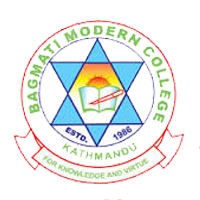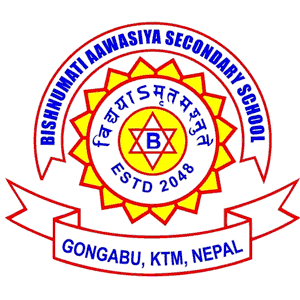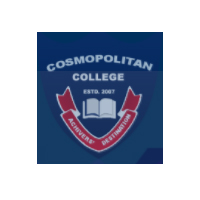Overview
Ten Plus Two (+2) Humanities at Triton International College, Koteshwor
Ten Plus Two (+2) Humanities at Triton International College, Koteshwor follows the National Examinations Board (NEB) framework for Grade 11 and 12. The stream builds your base in social sciences, language, and analytical writing. Students planning BA, BSW, psychology, sociology, media, or development studies find a clear path through subject choices that match future goals.
The program applies steady coursework, regular writing, and portfolio building. You learn to read evidence, present arguments, and connect classroom ideas to Nepali communities and institutions.
Highlights
-
NEB-affiliated Humanities stream for Grade 11–12.
-
Core focus on language, social sciences, and research writing.
-
Subject selection from the NEB basket offered on campus.
-
Internal assessments and final NEB board examinations.
-
Orientation, study-skills support, and counseling for course planning.
Curriculum Details
NEB assigns compulsory courses across the two grades while schools offer specialization subjects from an approved basket. Triton schedules subjects each session based on faculty availability and seat planning.
Compulsory components (across the two years)
-
Compulsory Nepali
-
Compulsory English
Specialization basket offered on campus (session-wise)
-
Sociology
-
Psychology
-
Major English or Major Nepali
-
Mass Communication and Journalism
-
Economics
-
Rural Development
-
Population Studies
-
History or Geography (as scheduled)
Students select three specialization subjects in consultation with the academic unit. Course combinations depend on your interest and the session’s timetable. The plan includes short assignments, book reviews, media analysis, field notes, and class presentations.
Grade 11 emphasizes foundations: reading strategies, basic statistics for social data, note-making, and short essay structure. Grade 12 extends to research summaries, policy briefs, comparative essays, and exam-focused writing. Teachers use past-paper practice to build exam familiarity while keeping space for independent projects.
Objectives
-
Develop clear reading and writing habits for academic work.
-
Build social science reasoning with attention to Nepal’s context.
-
Strengthen basic research steps: source finding, citation, and data display.
-
Grow confidence in discussion, presentation, and respectful debate.
Scope
Graduates of +2 Humanities apply to BA programs in English, Nepali, Sociology, Psychology, Mass Communication, Rural Development, and related fields. Students aiming for BSW or journalism find early exposure to community and media tasks helpful. The stream also supports entry roles in documentation and office communication if you plan to work before a bachelor’s degree.
Learning Outcomes
By the end of Grade 12, students typically can:
-
Summarize readings and identify central claims with supporting evidence.
-
Write short papers with clear introductions, sections, and references.
-
Interpret simple tables, charts, or survey summaries and relate them to questions.
-
Present viewpoints in class and respond to counter-arguments respectfully.
-
Maintain a portfolio that includes essays, reports, and presentation slides.
Skill Development Modules
-
Writing Labs: Paragraph control, transitions, citation basics, and proofreading.
-
Research Basics: Topic selection, question framing, small literature scans, and data tables.
-
Media Literacy: Headline analysis, source credibility checks, and brief news summaries.
-
Field Notes: Community observation sheets, interview guides, and reflection pages.
-
Presentation Practice: Short talks with slides, timing control, and Q&A handling.
Teaching Methodology
Classes combine lectures, tutorials, and guided tasks. Teachers schedule low-stakes quizzes, peer review sessions, and feedback meetings. Students complete periodic assignments that mirror board style while building independent habits. Mentors track progress and suggest reading lists aligned to your subjects.
Admission Requirements
Applicants must have passed SEE or equivalent from a recognized board. The college expects a minimum GPA of 1.6 with D+ in all subjects for the Humanities stream.
Admission opens after national results. Students submit the application form, SEE mark sheet, character certificate, and other required documents within the intake window.
Career Opportunities
Entry roles include documentation assistant, content support, program assistant in community projects, school office aide, or media desk support. Strong writing and spreadsheet basics help you start early internships. Many students continue to BA and then move into specialized roles in education, social sector programs, media, or local governance.
Scholarships and Financial Aid
Scholarship notices are published each session. Criteria may include SEE performance, internal assessments, and defined categories in the college guideline. You should track the current call, prepare documents, and apply within the deadline.
Why Choose This Course?
Students who enjoy reading, discussion, and writing benefit from this route. The mix of language and social sciences supports bachelor admissions and gives you usable skills for documentation and early field tasks. A steady routine of assignments and presentations builds confidence for board exams and university study.
Conclusion
Ten Plus Two (+2) Humanities at Triton International College provides an NEB pathway that values reading, analysis, and clear writing. The curriculum encourages careful work habits and portfolio evidence. You should verify subject combinations, seat plans, and scholarship terms from the current admission notice before submission.























